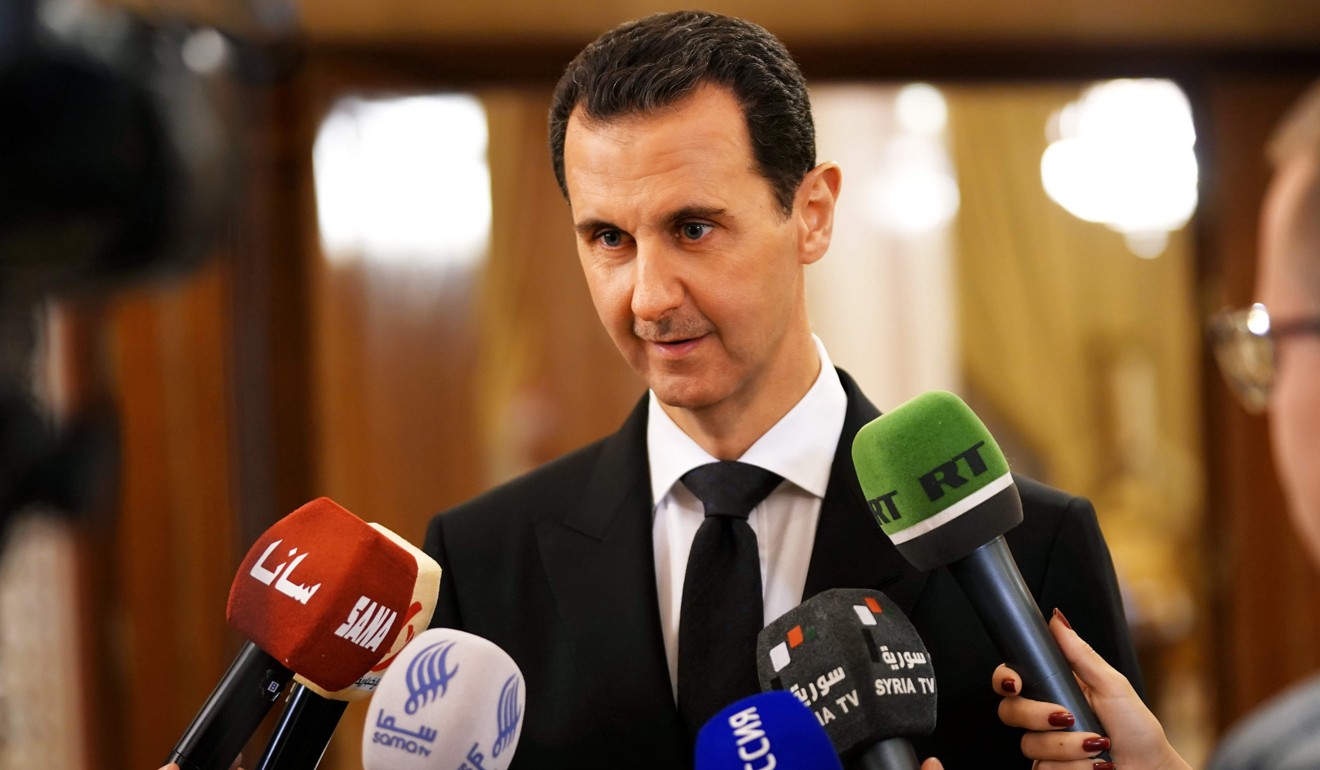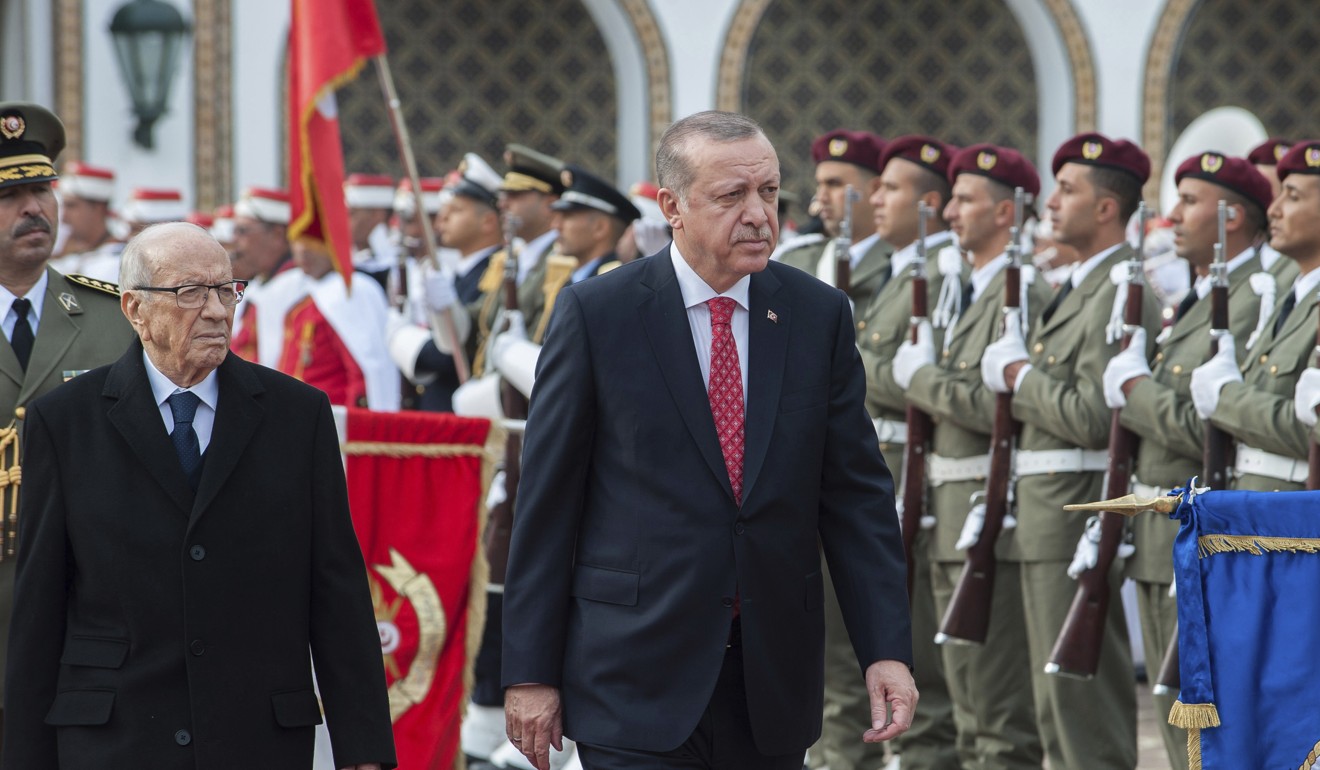
Turkey and Syria engage in a war of words as Erdogan and Assad call each other “terrorists”
The relationship between Turkey and Syria deteriorated further on Wednesday as the leaders of both countries denounced each other as ‘terrorists’.
In a news conference Turkish President Tayyip Erdogan called Syrian President Bashar al-Assad a terrorist and said it was impossible for Syrian peace efforts to continue with him.
Syria’s foreign ministry quickly responded by accusing Erdogan of himself supporting “terrorist groups” opposing Assad’s regime in the Syrian civil war, which began almost nine years ago.
Turkey has demanded the removal of Assad from power and backed rebels fighting to overthrow him, but it has toned down its demands since it started working with Assad’s allies, Russia and Iran, for a political resolution.

“Assad is definitely a terrorist who has carried out state terrorism,” Erdogan told a televised news conference in Tunis, alongside his Tunisian counterpart Beji Caid Essebsi.
“It is impossible to continue with Assad. How can we embrace the future with a Syrian president who has killed close to a million of his citizens?” he said, in some of his harshest comments for weeks.
Syria’s Foreign Ministry responded by accusing Erdogan of supporting terrorism, adding that he bears “prime responsibility for the bloodshed in Syria,” and alleging that he had given “limitless support” to all kinds of “terrorist groups.”
The Syrian government refers to all those who have taken up arms against it, including mainstream opposition groups, as terrorists.
Syria’s state news agency, SANA, quoted a foreign ministry source as saying Erdogan “continues to misdirect Turkish public opinion with his usual froth in an attempt to absolve himself of the crimes which he has committed against the Syrian people through advancing support to the various terrorist groups in Syria”.
Though Turkey has long demanded Assad’s removal, it’s Syria concerns are now more focused on the threat from Islamist militants and Kurdish fighters it considers allies of the Kurdistan Workers’ Party (PKK), who it says have formed a “terror corridor” on its southern border.
Turkey says the Syrian Kurdish YPG militia - which Ankara views as an extension of the outlawed PKK that has fought an insurgency in southeast Turkey since the 1980s - cannot be invited to Syrian peace talks in the Kazakh capital Astana.
The YPG is the main element in a force that Washington has assisted with training, weapons, air support and help from ground advisers in the battle against Islamic State. That US support has angered Ankara, a Nato ally of Washington.

Despite its differences with Russia and Iran, Turkey has worked with the two powers in the search for a political solution in Syria.
Ankara, Moscow and Tehran also brokered a deal to set up and monitor a “de-escalation zone” to reduce fighting between insurgents and Syrian government forces in Syria’s rebel-held northwestern Idlib province.
“We can’t say [Assad] will handle this. It is impossible for Turkey to accept this. Northern Syria has been handed over as a terror corridor. There is no peace in Syria and this peace won’t come with Assad,” Erdogan said.
Russia’s foreign minister said a Moscow-proposed peace congress scheduled for next month is crucial for reaching a settlement in Syria and is not hampering United Nations-led talks.
Sergey Lavrov’s statement on Wednesday comes a day after several dozen Syrian opposition groups issued a series of statements saying the talks in Russia’s Sochi next month are an attempt to “circumvent” the UN-led peace process.
Lavrov, who was meeting with Syrian opposition leader Ahmad Jarba on Wednesday, told Russian news agencies that the Sochi congress would lay the groundwork for UN-led talks.
The Russian minister quoted “broad support” for the Sochi talks among Syrians and said Russia’s goal is to gather together the largest number of opposition groups possible to help launch constitutional reform in the war-torn country.


